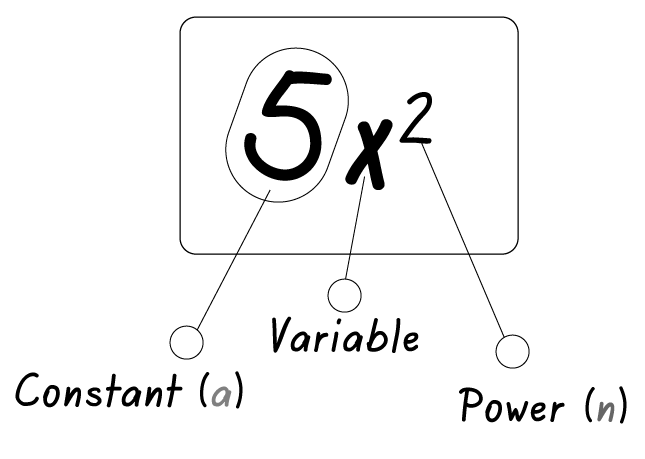
Function of a function can be solved using the chain rule.
Here's a step-by-step guide on how to solve differentiation of a function of a function using the chain rule:
1. Identify the inner and outer functions:
Let y = f(g(x)), where f and g are functions. Identify g(x) as the inner function and f(u) as the outer function.
2. Differentiate the outer function with respect to the inner function:
Find the derivative of f(u) with respect to u, denoted as f'(u).
3. Differentiate the inner function with respect to x:
Find the derivative of g(x) with respect to x, denoted as g'(x).
4. Multiply the two derivatives together:
Multiply f'(u) and g'(x) together to get the derivative of the composite functions.
5. Replace u with g(x) in the final expression:
Substitute g(x) for u in the resulting expression to get the final derivative of y with respect to x.
1. Differentiate the function f(x) = (3x^2 + 1)^3.
Solution:
To differentiate a function of a function, we can use the chain rule. Let u = 3x^2 + 1. Then, f(x) = u^3.
Now, let's differentiate u with respect to x:
\frac{du}{dx} = 6x.
Now, applying the chain rule, we have:
\frac{df}{dx} = \frac{d(u^3)}{du} \cdot \frac{du}{dx}
\frac{df}{dx} = 3u^2 \cdot 6x
\frac{df}{dx} = 18x(3x^2 + 1)^2.
2. Find the derivative of g(x) = e^{4x^2}.
Solution:
To differentiate a function of a function, we can use the chain rule. Let u = 4x^2, then g(x) = e^u.
Now, let's differentiate u with respect to x:
\frac{du}{dx} = 8x.
Then, applying the chain rule, we have:
\frac{dg}{dx} = e^u \cdot 8x
\frac{dg}{dx} = 8x e^{4x^2}.
3. Differentiate the function h(x) = \sqrt{5x^3 + 2}.
Solution:
To differentiate a function of a function, we can use the chain rule. Let u = 5x^3 + 2, then h(x) = \sqrt{u}.
Now, let's differentiate u with respect to x:
\frac{du}{dx} = 15x^2.
Now, using the chain rule, we have:
\frac{dh}{dx} = \frac{1}{2\sqrt{u}} \cdot 15x^2
\frac{dh}{dx} = \frac{15x^2}{2\sqrt{5x^3 + 2}}.
4. Determine the derivative of k(x) = \cos(2x^2 + 3).
Solution:
To differentiate a function of a function, we can use the chain rule. Let u = 2x^2 + 3, then k(x) = \cos(u).
Now, let's differentiate u with respect to x:
\frac{du}{dx} = 4x.
Now, applying the chain rule, we get:
\frac{dk}{dx} = -\sin(u) \cdot 4x
\frac{dk}{dx} = -4x\sin(2x^2 + 3).
5. Find the derivative of m(x) = e^{x^2 + 2x + 3}.
Solution:
To differentiate a function of a function, we can use the chain rule. Let u = x^2 + 2x + 3, then m(x) = e^u.
Now, let's differentiate u with respect to x:
\frac{du}{dx} = 2x + 2.
Now, applying the chain rule, we have:
\frac{dm}{dx} = e^u \cdot (2x + 2)
\frac{dm}{dx} = (2x + 2)e^{x^2 + 2x + 3}.
Questions of Functions of Function
1. Find the derivative of the function f(x) = \sin(3x^2).
2. Calculate the derivative of g(x) = e^{2x^3}.
3. Determine the derivative of h(x) = \cos(4x).
4. Find the derivative of p(x) = \ln(5x^2 + 3).
5. Calculate the derivative of q(x) = \sqrt{2x + 1}.
6. Determine the derivative of r(x) = \tan(2x^2).
7. Find the derivative of s(x) = e^{\frac{1}{x^2}}.
8. Calculate the derivative of t(x) = \ln(4x^3 - 2x + 5).
9. Determine the derivative of u(x) = \sin(5x).
10. Find the derivative of v(x) = \cos(3x^2 + 2x).
11. Calculate the derivative of w(x) = e^{6x^2 + 3x}.
12. Determine the derivative of y(x) = \ln(2x+1)^2.
13. Find the derivative of z(x) = \sqrt{3x^2 + 1}.
14. Calculate the derivative of a(x) = \tan(4x^3 + x).
15. Determine the derivative of b(x) = e^{8x^2 - 2x}.
Corresponding Answers of Functions of Function
1. The derivative of f(x) = \sin(3x^2) is f'(x) = 6x\cos(3x^2).
2. The derivative of g(x) = e^{2x^3} is g'(x) = 6x^2e^{2x^3}.
3. The derivative of h(x) = \cos(4x) is h'(x) = -4\sin(4x).
4. The derivative of p(x) = \ln(5x^2 + 3) is p'(x) = \frac{10x}{5x^2 + 3}.
5. The derivative of q(x) = \sqrt{2x + 1} is q'(x) = \frac{1}{\sqrt{2x + 1}}.
6. The derivative of r(x) = \tan(2x^2) is r'(x) = 4x\sec^2(2x^2).
7. The derivative of s(x) = e^{\frac{1}{x^2}} is s'(x) = -\frac{2}{x^3}e^{\frac{1}{x^2}}.
8. The derivative of t(x) = \ln(4x^3 - 2x + 5) is t'(x) = \frac{12x^2 - 2}{4x^3 - 2x + 5}.
9. The derivative of u(x) = \sin(5x) is u'(x) = 5\cos(5x).
10. The derivative of v(x) = \cos(3x^2 + 2x) is v'(x) = -6x\sin(3x^2 + 2x) - 2\sin(3x^2 + 2x).
11. The derivative of w(x) = e^{6x^2 + 3x} is w'(x) = (12x + 3)e^{6x^2 + 3x}.
12. The derivative of y(x) = \ln(2x+1)^2 is y'(x) = \frac{2}{2x+1}.
13. The derivative of z(x) = \sqrt{3x^2 + 1} is z'(x) = \frac{3x}{\sqrt{3x^2 + 1}}.
14. The derivative of a(x) = \tan(4x^3 + x) is a'(x) = 12x^2\sec^2(4x^3 + x) + \sec^2(4x^3 + x).
15. The derivative of b(x) = e^{8x^2 - 2x} is b'(x) = (16x - 2)e^{8x^2 - 2x}.
